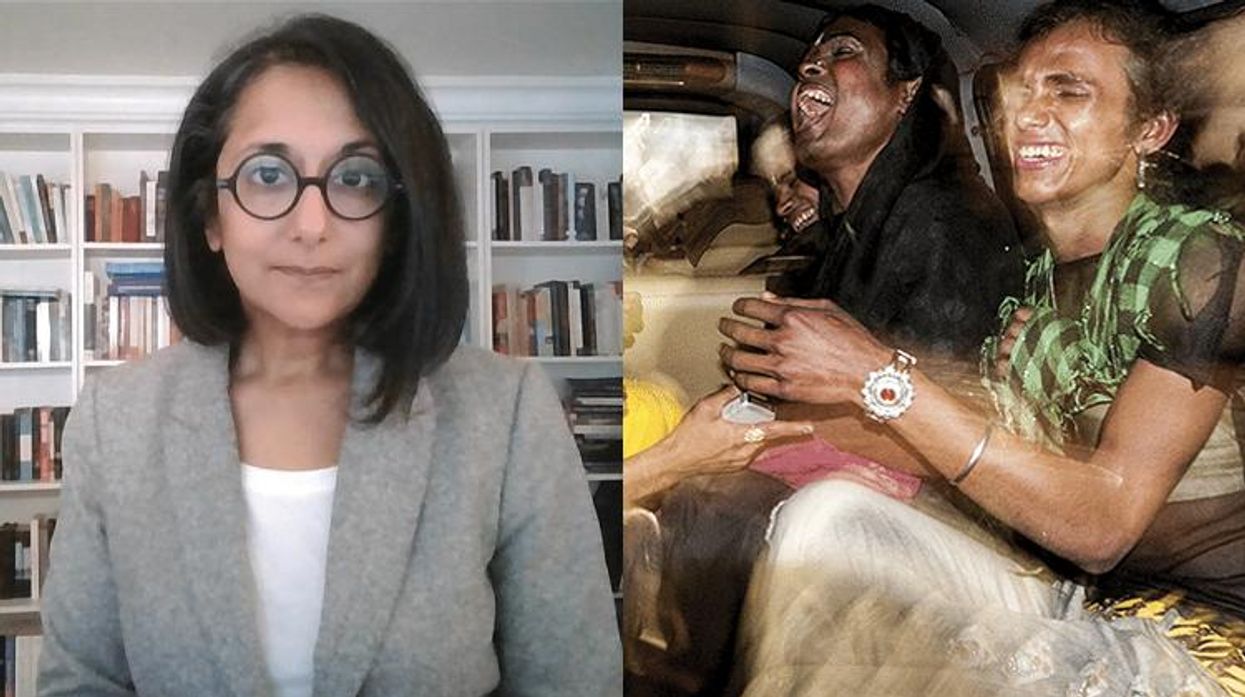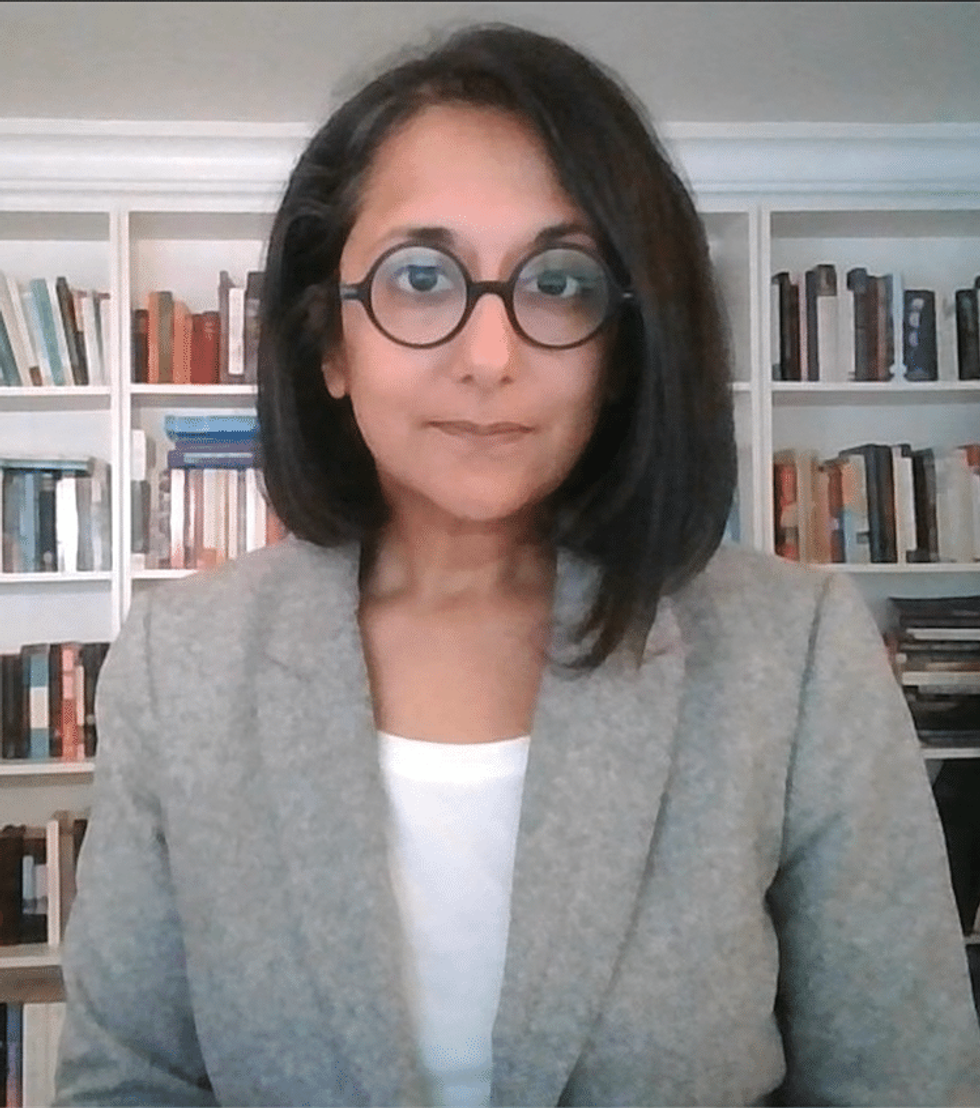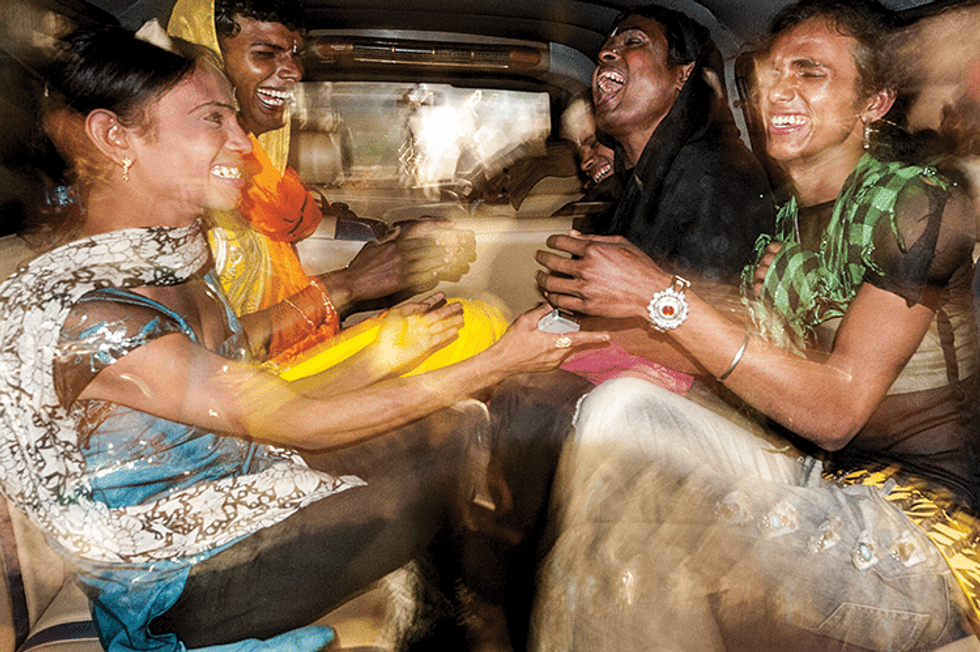Exclusives
This Scholar Gives Voice to Queer Travelers of Color

Churnjeet Mahn, a noted expert on the intersectionality of race, sexuality, and travel discusses navigating whiteness and fighting colonialism.
February 18 2022 4:00 AM EST
By continuing to use our site, you agree to our Privacy Policy and Terms of Use.

Churnjeet Mahn, a noted expert on the intersectionality of race, sexuality, and travel discusses navigating whiteness and fighting colonialism.
A distinguished scholar, Churnjeet Mahn is a Reader in English Literature at U.K.’s University of Strathclyde, where her research focuses on the intersection of race, sexuality, and travel. The author of British Women’s Travel to Greece, 1840-1914: Travels in the Palimpsest is currently working on Cross-Border Queers, about LGBTQ+ South Asian migrants to the U.K., and a new project on queer travel writers of color.
In reflecting on her own LGBTQ+ identity, Mahn says, “I’ve described myself as queer, lesbian, and gay over the years — one word doesn’t fit all times, places, and feelings.”
Much as the words she uses to describe herself have evolved, so too is how she has been viewed, defined, or interpreted by the travel industry. “The one thing I’ve noticed is in the past it was easier and more convenient to ignore me — which was always nicer than the outright hostility I had experienced as a brown lesbian traveler, and then was trained to anticipate. But now, I can be displayed as diversity. Which is a different kind of scrutiny. And can be equally tiring.”

Out Traveler recently spoke with Mahn about her work, how travel writing has been used to reinforce white heteronormativity, and how queers of color can help us all cross the boundaries prescribed by colonization.
What draws you to the subject of travel?
[It’s] a paradigm for understanding human experience…almost everything is about travel because it involves crossing some kind of real or imaginary border. The goal? We’re all somewhere in a complex web of entanglements. The more we can see that, the closer we can get to understanding the violence of real and social borders. What divides and often defines us seems so important. At its most utopian, at its most queer, maybe travel can offer a praxis for a different way of being in the world. I’m always looking for new orientations.
Tell us about the book you are working on.
[An] intersection between racism and xenophobia and homophobia seeded my interest in a whole genre of travel writing where white people have traveled to “exotic” locations to feel queer. And how many of these places have now come to have been seen as some of the most dangerous to queers. Until my current work, I had approached this issue through white writers. I’m now considering how queer writers of color navigate structures of racism and homophobia as legacies of empire and colonialism in their writing. Do they write differently? Yes and no. Yes, because they’re on the other side of history, but partly no, because like all travel writing, especially in English, they have to navigate whiteness in travel.

Many think LGBTQ+ rights were invented by the very colonial powers that originally demonized sexual and gender diversity.
South Asia is just one of the many places in the world which has a rich history of queer lives and desires which didn’t map onto the legislative and cultural framework of the British Empire, and so it became a direct threat. I’m always more interested in the operation of whiteness and how and why it constructs queer lives as aberration. So yes, there’s a grim irony in the LGBTQIA+ civil rights movement being some kind of “gift” from the West.
The countries considered most dangerous for LGBTQ+ travelers happen to be in the East and south of the equator. Is that justified?
We encounter danger all of the time. Which is not to diminish the wholesale government-sponsored discrimination against queer people…[but] we need to think carefully about the way in which the contemporary geopolitics and histories of sexual difference are entangled. There is no “bad over there” and “good here.” The quicker we can turn to the legacies of racism, colonialism, and empire in our understanding of sexuality, the quicker we can begin to see the way so much queer history has been written from the perspective of white heteronormativity, erasing the lives and history of queer people of color. We need fuller pictures to understand how and why lives come under threat.
This article originally ran in the Winter 2022 issue of Out Traveler, which is available on the newsstand now. It was initially titled Crossing Borders, and was part of the issue's special feature on outsider travelers.